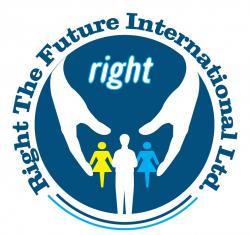KAMPALA, Uganda — Uganda has one of the largest population of children in the world. Out of 37 million people in our country, 56 percent are under 18 years old and slightly more than half of those are under age 15. We have a high level of poverty and HIV/AIDS in Uganda as well, which has resulted in broken families and an influx of children and women living in the streets in the last 20 years. These vulnerable people, many of them residing here in the capital and throughout Uganda’s other urban centers, contend with violence and discrimination by police, local officials, peers and others in their communities. These women and children who end up living hand to mouth, sleeping in streets, suffer terribly.
Particularly, they often lack access to sexual reproductive health information and services, clean water, food, medical attention and education. Indeed, up to 96 percent of children are considered “vulnerable,” according to a 2009 analysis; out of 17 million children nationally, 14 percent are orphans. The vulnerability scores were based not only on orphanhood status but also on child marriage, being affected by HIV or other diseases, living in a conflict area, living in a child-headed household and lacking access to basic services, such as schooling. Prevailing poverty heightens the problems of vulnerable children, whose population keeps growing, the analysis said.
Children who are new to the streets are often sexually abused by their peers and by adults as a form of initiation. The problem of little to no reproductive health services being available to street people is evidenced by an increasing population of pregnant girls with unwanted pregnancies. Many of them are not only raped and assaulted but get infected with HIV/AIDS. Due to the lack of jobs and family support, the girls cannot afford to pay the fees to attend school, where basic sexual reproductive health rights information is available. They also cannot maintain proper hygiene and properly care for themselves.
The community views these children as thieves, criminals and substance abusers as well as stubborn. They have immense sexual health needs but don’t know where to go for services like family planning, checkups, counseling and medication. The unwanted pregnancies could be avoided if the adolescent girls had access to the right services. Instead, they become young mothers, destitute and desperate. The problem has worsened during the Covid-19 lockdowns since most of the support for street children used to come voluntarily from people, including politicians and well-wishers, whose efforts have been constrained by the restrictions of movement.
For the last three years, Right the Future, a public charity founded by Jemba Pius and me, is run with two other staffers and volunteers, including university students, all with guidance from a board of five directors, which include Jemba and me. (We are planning to build a website in 2022 to amplify our charity’s work.) Our organization has been working with Ugandan authorities to ensure that children and young women are prevented from joining the streets while those already there are rescued, rehabilitated and reintegrated into welcoming families and communities. This work has involved providing access to education, therapy and livelihoods, such as vocational skills and training. We have partnered with organizations like the Kampala Capital City Authority in offering programs on educating street people on sexual reproductive health care rights and services in the biggest slums of Kampala, including in Bwaiise, Kamwokya, Kisenyi and Kalerwe.
We have also worked with community groups to improve the health and well-being of street people with disabilities.
Mercy and her mother are examples of people living in the street whom we have helped to connect to a funder so that Mercy can go to school, as her mother is unable to foot the education bills. Through our charity, Mercy’s mother was taught how to start a small business of selling fruit, mainly oranges and mangoes. Both Mercy and her mum, however, were not able to attend school or keep the business going because of Covid-19 constraints, so they returned to the streets for survival.
There is a desperate need for street children to live peacefully in a positive environment, especially one offering sexual reproductive health services. This can be achieved through collaborative efforts among a range of organizations inside Uganda and outside it to bridge the gap created by the Covid-19 pandemic. It is important to support the street children and mothers so they can live a healthy, self-sustaining life, since they are discriminated so much by society. Their rights as citizens need to be supported as well, especially as Covid-19 restrictions are turning their coping mechanisms into survival mode, becoming thieves, drug dealers, sex workers and other ways to get through each day.
So we want to raise awareness of the street people in our midst, for we champion their rights year-round and we will never give up on them.
Ali Kabugo I am a founder of Right the Future charity, based in Kampala, Uganda. It aims to provide basic services to help homeless people, especially girls, living in urban centers of the country.
I will be grateful if my request is put into your considerations urgently
Stay blessed
Ali Kabugo
Executive Director

.jpeg)
